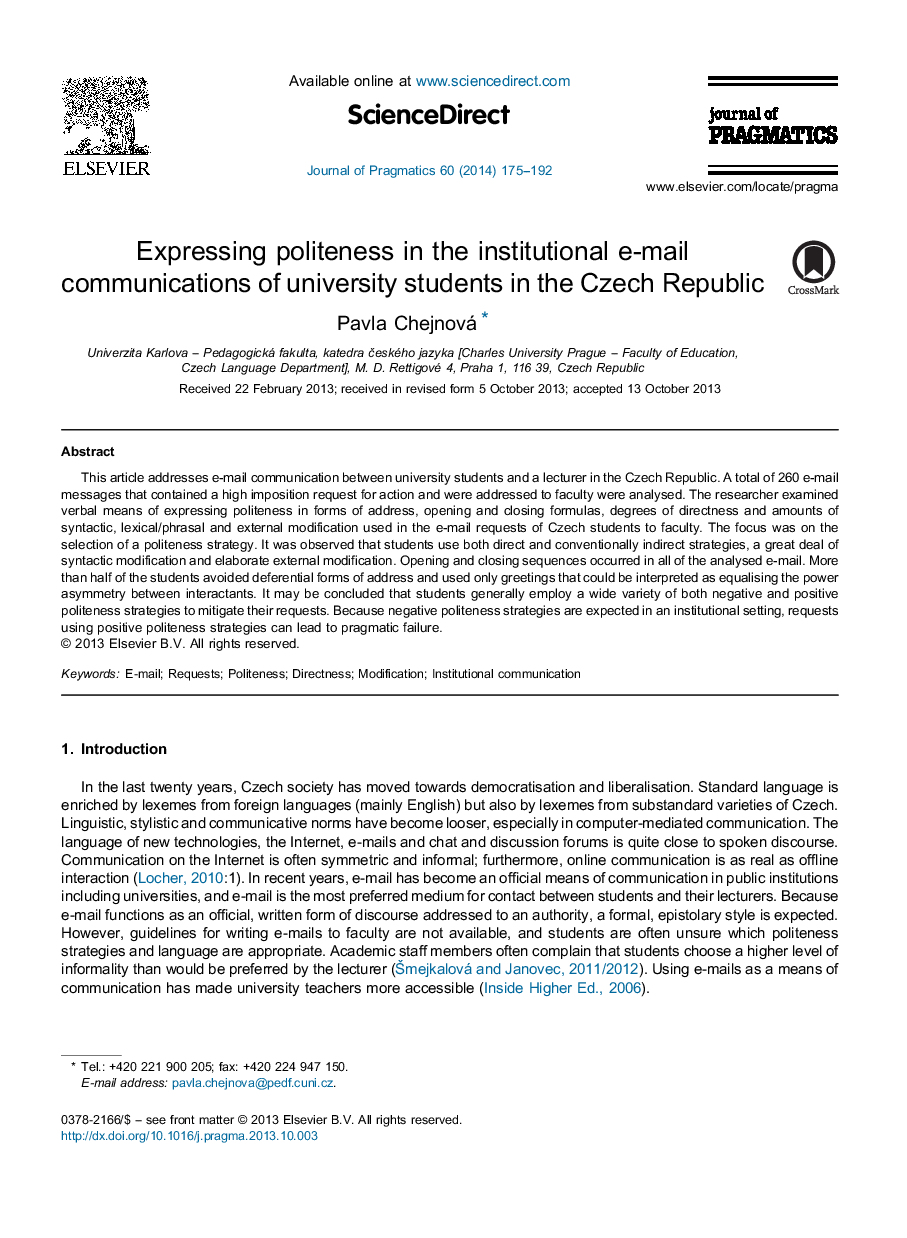| کد مقاله | کد نشریه | سال انتشار | مقاله انگلیسی | نسخه تمام متن |
|---|---|---|---|---|
| 932806 | 1474740 | 2014 | 18 صفحه PDF | دانلود رایگان |
• Politeness strategies in 260 e-mail requests from university students to faculty were analysed.
• Salutations, directness level, syntactic, lexical and external modification were examined.
• It was found that students employ a great amount of syntactic modification.
• It was found that both positive and negative politeness strategies were used.
This article addresses e-mail communication between university students and a lecturer in the Czech Republic. A total of 260 e-mail messages that contained a high imposition request for action and were addressed to faculty were analysed. The researcher examined verbal means of expressing politeness in forms of address, opening and closing formulas, degrees of directness and amounts of syntactic, lexical/phrasal and external modification used in the e-mail requests of Czech students to faculty. The focus was on the selection of a politeness strategy. It was observed that students use both direct and conventionally indirect strategies, a great deal of syntactic modification and elaborate external modification. Opening and closing sequences occurred in all of the analysed e-mail. More than half of the students avoided deferential forms of address and used only greetings that could be interpreted as equalising the power asymmetry between interactants. It may be concluded that students generally employ a wide variety of both negative and positive politeness strategies to mitigate their requests. Because negative politeness strategies are expected in an institutional setting, requests using positive politeness strategies can lead to pragmatic failure.
Journal: Journal of Pragmatics - Volume 60, January 2014, Pages 175–192
